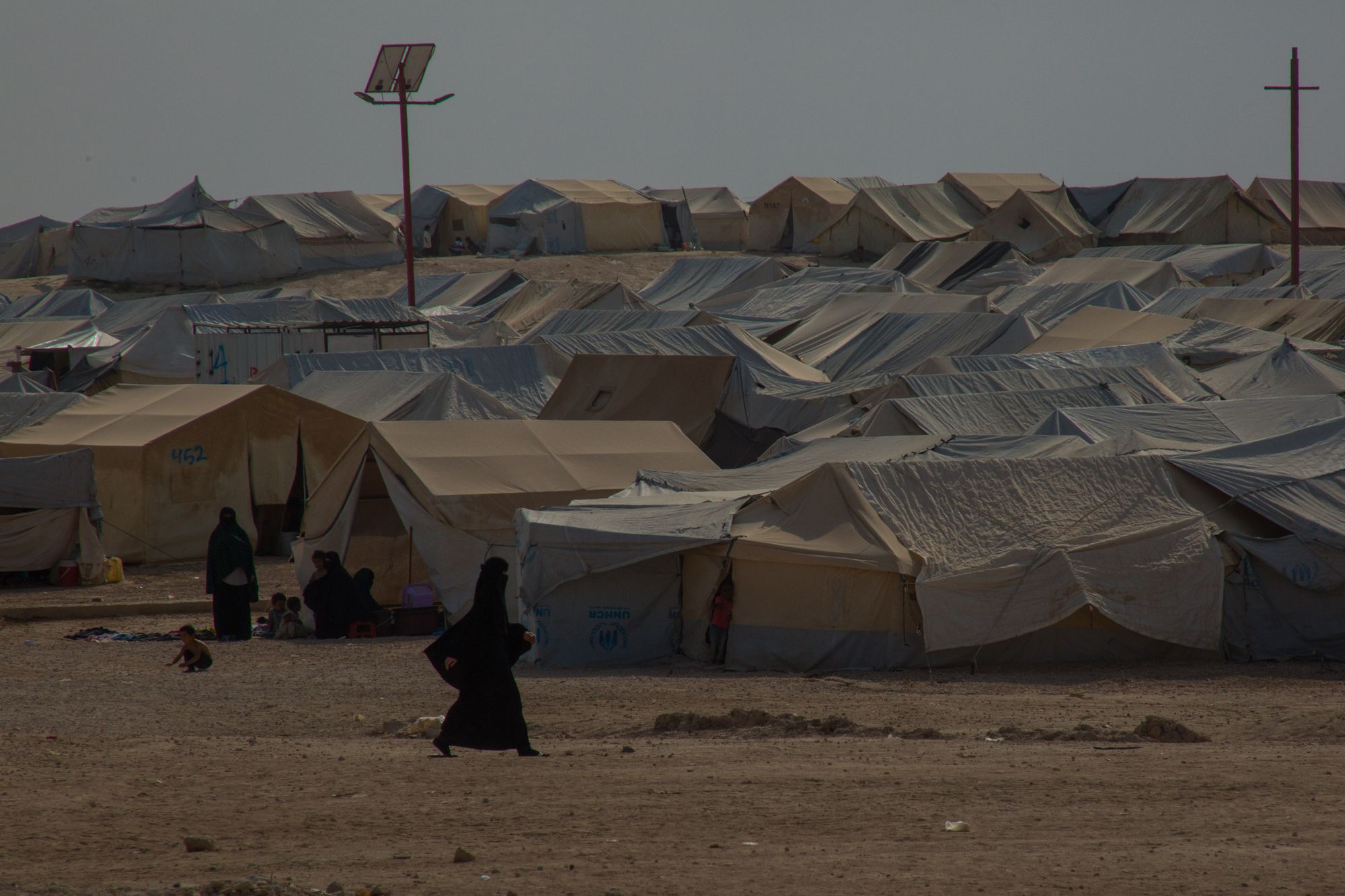On January 13th, France welcomed back seven children into the country from the war-wrecked camps in south-east Syria. The move signaled the country’s continuously cautious stance on repatriation. The topic, marred by fears of terrorism, legal complexities, and moral disputes is hence avoided by authorities and law-makers in fear of political and social backlash. This undercover conflict raises critical questions of citizenship rights, human rights, child welfare, and radicalization within the complicated European Union-Middle Eastern geopolitical context, which ultimately highlights its need to join mainstream discussion.
The fall of the Islamic State (IS) and its self-declared Caliphate in 2019 marked a new, unforeseen challenge for European nations. As foreign troops withdrew from the territory, the group of Syrian Democratic Forces (SDF) were left to organize refugees, defeated jihadists, and women and children into camps in south-east Syria. According to estimates, some 5,300 European men and women had travelled to the Levant to join a jihadist group since 2012, with some 1,000 children accompanying their parents on their journey to Syria and Iraq. Out of these, some have returned, some are still fighting, and some have died over the course of the war. Today, less than 10 percent of those children have come back to Europe, where France has been the destination of most of those returns.

The Legal Question
Many obstacles hinder repatriation efforts and a decisive government stance. For one, the very number of children belonging to each nationality is unreliable; the SDF camps have limited resources and harbor children who are orphaned or of mixed-European parentage. Hence, statistics do not reflect missing numbers and may include double-counts. These barriers to a full analysis of the scope of the problem do not help settle legal disputes. Under international humanitarian law, all children that are affected by armed conflict are entitled to special respect and protection, although due to a lack of active government action, these obligations have not been clearly applied to the topic of repatriation.
Other obstacles to the development of a decisive policy stance, amid unclear laws, lie in the diplomatic sector: the Kurdish state is not officially recognized. This renders official discussions with the SDF forces more difficult, all the while giving them more weight in negotiation; having control of foreign children in their camps could give them a stronger position in negotiations with the mothers’ home governments, thereby placing countries like France in a tight diplomatic situation. Finally, children exposed during the war and in the camps to indoctrination from ISIS are, in the words of former chief of the French domestic intelligence service Patrick Calvar, “ticking time bombs.” Such a view acts as another deterrent to approaching repatriation.
France holds moral obligations towards its citizens.
The Humanitarian Question
Aside from obstacles which prevent concrete political discussion, France holds moral obligations towards its citizens. From a human rights perspective, these children cannot be left to face the dangerous situations in the camps. Disease, harsh conditions, Turkish incursions, IS enforcers, and COVID-19 all threaten the safety of these French citizens. While Patrick Calvar may worry about bringing back indoctrinated minors into France, leaving them in the camps only strengthens this risk. While it is impossible to know how many of the women are still ISIS believers, any remaining followers menace the others with threats, intimidation, and occasionally violence, according to aid workers and researchers in Al Hol, a major SDF camp.
From a health perspective, child mortality in the camps is among the highest in the world, with 144 dead for every 1000 children below five years old. The COVID-19 risk adds to these unsustainable conditions as panic and suspicions rise. Officials fear having no other option but to “watch people die.” The dire conditions of the camps are reflected in the impact on mental health for many minors—those that were examined after their return in France were found to have post-traumatic stress disorder, attachment disorders, developmental delays, depression, and anxiety, among other disorders. COVID-19 fears, indoctrination or radicalization risks amid widespread hopelessness, and a general lack of emotional or psychological support in the SDF camps only serve to further alienate these French citizens, which would have a better chance of recovery in their—or their parents’—home country.
Push and Pull in the Mainland
This issue not only involves legal complications and a harsh reality in the camps, but also deals with the trauma and stigma associated with terrorism in France. Legally, France criminalizes and prosecutes parents who took their children to fight and fighters linked to the Islamic State. This is done through “ghost trials,” in which all defendants are tried in absentia. Such is the reticence of France to repatriate any of these individuals that Antoine Ory, a defense lawyer in a large January 2020 trial, acknowledged that “in France, in 2020, we refuse to repatriate the living but we try the dead.” Resistance also occurs on the other end of the conflict as some mothers in the camps, facing separation from their child, are unwilling to have them raised in non-Muslim surroundings and in a country with a strong laïque, or secular, political and social atmosphere. The backlash and reticence in France is felt by both ends: Islamic State attacks in the European Union country have killed more than 250 people, turning a majority of the French population against repatriation of IS members and their families and leaving roughly 300 children unaccounted for.
While the larger French population and the government remain cautious, if not hesitant, to engage in full repatriation talks, some families have formed groups to pressure more proactive action. The United Family Collective, which brings together families of French IS members, complain that France’s case-by-case approach “leaves a bitter taste, even if it proves that France has the capacity to repatriate who it wants, when it wants." The group filed lawsuits in Paris in 2019, represented by the lawyer Marie Dosé, in an effort to have a magistrate appointed to investigate what the group sees as a deliberate failure. A similar lawsuit was also filed at the European Court of Human Rights against France by the grandparents of two children stranded with their French terrorist mother in Syria. Unabating, the families also attempted a symbolic demonstration: the group gathered in front of the State Secretariat in September 2020, each family bringing a backpack to symbolize the lost education of their child relative. The government, however, still remains largely unresponsive.
The repatriation question illustrates the complexities of warfare and international politics concerning the Middle East through a lens hardly put in the limelight. Public pressure and awareness of this issue would facilitate repatriation talks and a deeper analysis of the scope of and specific conditions in the Syrian camps. Although this situation constitutes a challenge in migration and immigration discussion, it must be addressed, or else risk that children be left behind or that the conditions worsen over time. France, in waging war in Syria, must now relieve the thoroughly scarred region of an additional burden and humanitarian crisis it cannot and should not handle.





